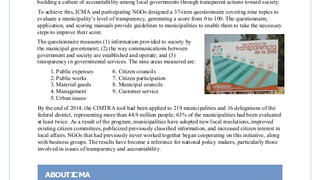The ICMA China Center is offering a professional development study tour in China, April 16-28, 2015. The study tour complements a conference where ICMA members can explore opportunities to provide expertise and form partnerships with Chinese cities.
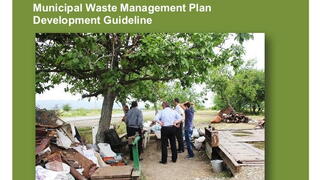
Municipal waste management has been a problem in Georgia for many years, both in terms of insufficient quality and coverage of waste related services....
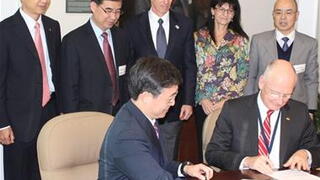
New MOU strengthens ICMA's relations with China.
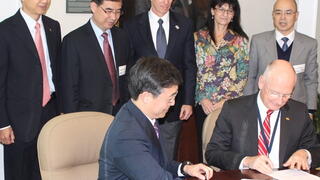
A new memorandum of understanding expands opportunities for technical expert exchanges with Chinese institutions.

Two Indonesian participants in the ICMA Professional Fellows Program met with Vice President Joe Biden.
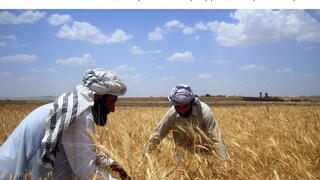
This is the final report from the Capacity Building and Change Management Program (CBCMP) for the Afghanistan Ministry of Agriculture, Irrigation and Livestock (MAIL).

